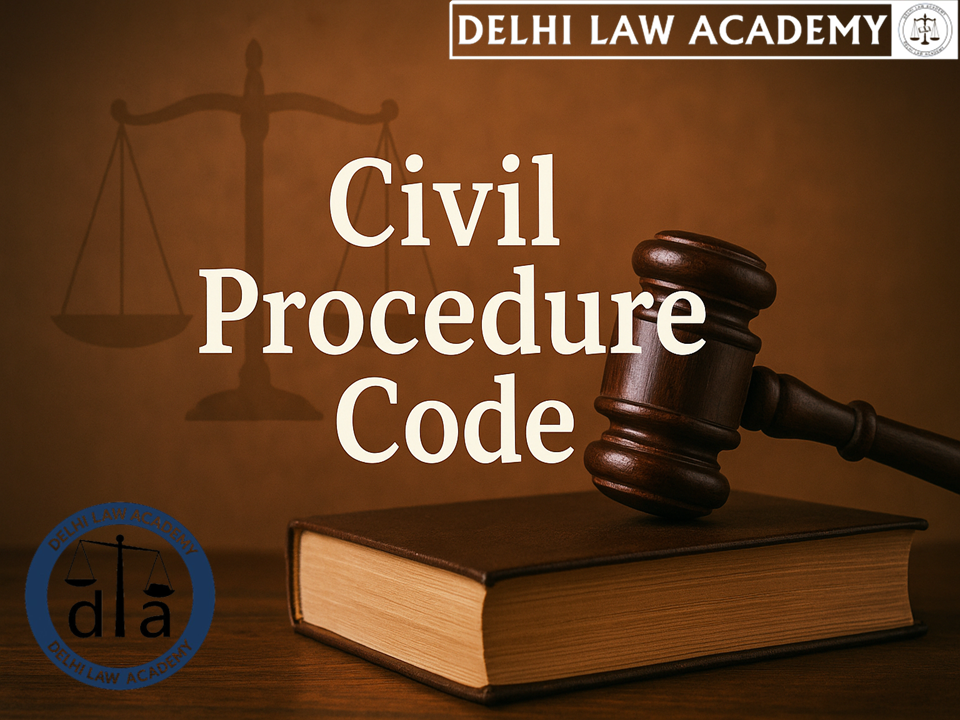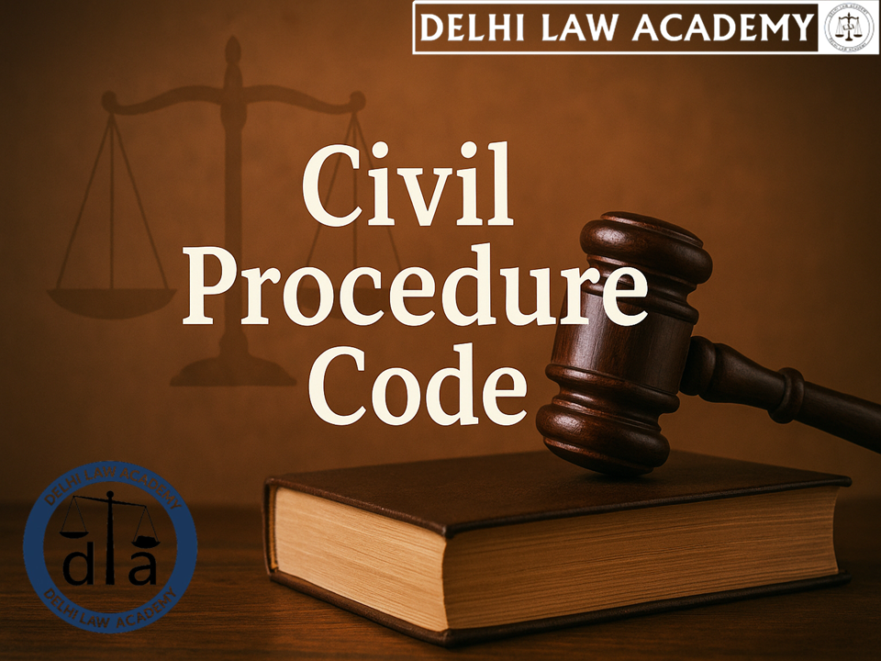
⚖️ CIVIL PROCEDURE CODE: REFERENCE, REVIEW AND REVISION
📘 Topics Covered
- REFERENCE to High Court: Reference means referring a case to the higher court to seek the opinion of the higher court when there is a doubt on a question of law.
- Review of judgment: A Court may reconsider a decision given by it if certain conditions are satisfied. But a court cannot review its decision suo motu.
- Revision of any case which has been decided by a subordinate court: Higher Courts have revision jurisdiction and can call for the record of any case which is already decided.
Relevant Orders:
- REFERENCE – Order XLVI
- REVIEW – Order XLVII
🎯 Preparation for RJS, DJS, PCS (J) and other Judicial Service Exams
The Civil Procedure Code forms the bedrock of any and every Judicial Service exam in the country.
Its thorough knowledge is a must for all aspirants of RJS, DJS, PCS (J) and every other Judicial Service exam.
To help such aspirants, Delhi Law Academy Jaipur has launched a series of study material modules on all important aspects of this vital part of their syllabus.
📖 REFERENCE to High Court (Section 113)
- Subject to prescribed conditions and limitations:
- Any Court may state a case and refer the same for opinion of the High Court…
- The High Court may make such order thereon as it thinks fit.
Proviso:
- Where a Court is satisfied that a case pending before it involves a question as to validity of any Act, Ordinance or Regulation…
- and is of opinion that such Act, Ordinance or Regulation is invalid or inoperative but has not been so declared by the concerned High Court or Supreme Court…
- The Court shall state a case setting out its opinion and reasons therefor and shall refer the same for opinion of the High Court.
• For prescribed conditions and limitations, please refer to Order XLVI.
• Reference means referring a case to the higher court to seek the opinion of the higher court when there is a doubt on a question of law.
📑 REVIEW (Section 114)
- Subject as aforesaid:
- Any person considering himself aggrieved by a decree or order from which an appeal is allowed but not preferred…
- Or by a decree/order from which no appeal is allowed by this Code…
- Or by a decision on a reference from a Court of Small Causes may apply for a review of judgment to the Court which passed the decree or made the order.
- The Court may make such order thereon as it thinks fit.
• For prescribed conditions and limitations, please refer to Order XLVII.
• A Court may reconsider a decision given by it if certain conditions are satisfied. But a court cannot review its decision suo motu.
⚖️ REVISION (Section 115)
- High Court may call for the record of any case which has been decided by a subordinate Court and in which no appeal lies to the High Court.
- If such subordinate Court appears to have exercised a jurisdiction not vested in it by law, or failed to exercise jurisdiction, or acted illegally or with material irregularity…
- The High Court may make such order in the case as it thinks fit.
Proviso:
- High Court shall not vary or reverse any order made in course of a suit or proceeding except where such order would have finally disposed of the suit or proceeding.
Section 115(2): The High Court shall not under this section vary or reverse any decree or order against which an appeal lies either to the High Court or to any Court subordinate thereto.
Section 115(3): A revision shall not operate as a stay of a suit or proceeding except where such suit or proceeding is stayed by the High Court.
Explanation: “Any case which has been decided” includes any order made in the course of a suit or other proceeding.
• Section 115 of the Code of Civil Procedure deals with Revision.
• Higher Courts have revision jurisdiction and can call for the record of any case which is already decided.
• This power is given for efficient exercise of supervisory jurisdiction of Higher Courts.
📚 Continue Your CPC Preparation
Don’t stop here! Strengthen your knowledge of the Civil Procedure Code with our other fully solved tests:
📘 Free Study Material for Judiciary Aspirants!
Download our FREE study material prepared by Delhi Law Academy’s expert faculty.
💬 Frequently Asked Questions on Reference, Review & Revision under CPC
• Review (Section 114): Same court reconsiders its own decision under specified conditions.
• Revision (Section 115): High Court supervises subordinate courts to correct jurisdictional errors in cases where no appeal lies.
Contact us
📍 Delhi Law Academy – Jaipur Branch
6C, Tower 2, Coaching Hub, Pratap Nagar, Jaipur – 302033
📞 Phone:
+91 9911916552
+91 8447285606
✉️ Email:
contactus@delhilawacademy.com

